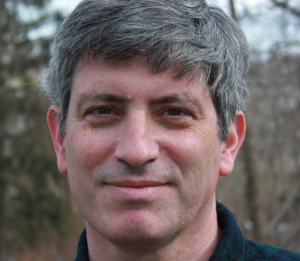The Secret of Being Carl Zimmer
You could say that Carl Zimmer is every young science writer’s aspiration. He has written 12 popular science books, two textbooks and hundreds of articles for places like The New York Times, National Geographic, Time, Scientific American, Science and Popular Science. His work has been anthologized in both The Best American Science Writing series and The Best American Science and Nature Writing series. He is a popular speaker at universities, medical schools, museums and festivals. He makes frequent appearances on popular radio programs like Radiolab and This American Life. And he has won a dozen awards.
At Showcase, we wanted to discover his secret — particularly when it comes to winning those awards. Here’s a Q & A with Zimmer:

What was your first award?
In 1994, I won the Evert Clark/Tony Payne Award for young science journalists. At the time, I had been at Discover for about four years and was starting to write features regularly for the magazine. I felt very lucky that my editors let me build up a portfolio that I could submit for the award.
When you submit stories for awards, how do you know which stories are award-worthy? Do you cater them toward individual awards?
I only write stories because I think they’re worth writing. Later, if someone sends me an email about a prize competition coming up, I may look back at my recent work and see if anything makes me particularly proud.
What is it that might make you particularly proud?
If I find a good story to tell and manage to tell it well, or I manage to capture the spirit of someone I’m profiling.
One of our first blog posts at Showcase discussed the fact that stories are more likely to win awards if they show an obvious impact on society. Is this something that you think about when writing stories?
The pieces for which I have won awards are often about science that has very little direct impact on society. I don’t write about health insurance or vaccine policies. I write about fireflies and intestinal bacteria and junk DNA. Basic science is important even if it won’t cure the common cold tomorrow. It’s important because it expands humanity’s understanding of how the world works. But I do try to explain why these subjects are not just interesting in themselves. Many of the most important applications of science sprang from research motivated by nothing more than curiosity.
Do you have a ritual or a life philosophy that you believe has led to your success? (Is it your hard work ethic or something you keep in mind while you work on a story?)
When I decided to make science writing my career, I asked experienced writers a lot of questions about how they do what they do. And when I left a staff position at Discover to work freelance on my own, I had a bunch of questions for freelance writers. I’ve benefited enormously from their advice. As a freelancer, you are not an artist so much as a small businessperson. You have to have a clear picture of how you’ll make a living now and next year. That means reaching out to a lot of editors and fellow writers to discover the places where you can thrive over the long term. I’ve also tried to treat my work as an ongoing writing workshop, learning from mistakes and figuring out how to tell a better story from each piece.
Tell me more about this writing workshop. Do you have an example of a story where you learned from a mistake?
I let some time pass after a story of mine is published, and then I go back to it. I can usually find something that I can see I could have done better. I could have cut out some boring digression, or I could have interviewed someone else to add another revealing perspective on the story. Or I could have resisted a cliché and spent a little extra time coming up with a better turn of phrase.
Obviously, the number of awards a writer receives is only one way to measure success, so I’m curious — how do you measure success?
One of my favorite measures of success in a story is when someone comes up to me and tells me how they really enjoyed a story about, say, the oldest fossils of our species, wondered who wrote it, and looked back at the byline. I feel like I’ve passed a blind science-writing taste test.
Finally, I can’t not ask this question: What advice do you have for young science journalists?
You’re not the first to ask, and I’ve ended up writing a fairly long piece in response: http://carlzimmer.com/writers.html. In brief, train yourself for journalism in the 2020s, not the 1980s. Find the places and the tools that will allow you to show the world how good you are. And always remember that you’re telling stories, not delivering 8 a.m. lectures.

